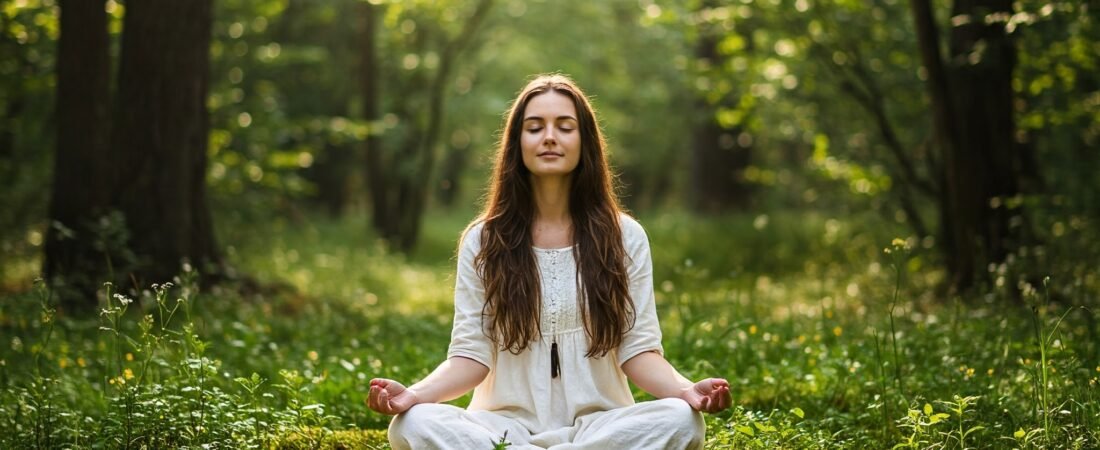In our fast-paced world, it’s easy to get caught up in a whirlwind of thoughts about the past or anxieties about the future. We often find ourselves replaying old conversations or worrying about what’s to come, all while the present moment slips by unnoticed. But what if we could learn to anchor ourselves in the “now”? Accepting and enjoying the present moment isn’t about ignoring life’s challenges, but about experiencing life more fully and finding peace amidst the chaos. Here are some practical ways to cultivate this invaluable skill.
1. Tune Into Your Senses
One of the most direct routes to the present moment is through your senses. Take a pause right now. What do you see around you? Notice colors, shapes, and light. What do you hear? Listen to the obvious sounds and the subtle ones – the hum of a computer, distant traffic, your own breath. What can you feel? The texture of your clothes, the support of your chair, the temperature of the air. Engaging your senses grounds you in your current experience. Try this during everyday activities: savor the taste and aroma of your morning coffee, feel the warmth of the sun on your skin, or truly listen to the laughter of a loved one.
2. Focus on Your Breath
Your breath is a powerful anchor to the present. Whenever you feel your mind racing or a sense of overwhelm, bring your attention to your breath. Notice the sensation of the air entering your nostrils, filling your lungs, and then being released. You don’t need to change your breathing; just observe its natural rhythm. This simple act can calm your nervous system and bring your focus back to the here and now. Even a few conscious breaths can make a significant difference.
3. Practice Mindfulness and Meditation
Mindfulness is the practice of paying attention to the present moment without judgment. This can be cultivated through formal meditation or integrated into daily life.
Meditation: Set aside a few minutes each day to sit quietly. Focus on your breath, bodily sensations, or the sounds around you. When your mind wanders (and it will!), gently guide it back to your chosen point of focus. There are many guided meditations available to help you get started.
Mindful Moments:You can also practice mindfulness during routine activities. While washing dishes, focus on the temperature of the water, the feeling of the soap, and the sight of the clean plates. During a walk, pay attention to the movement of your body and the sights and sounds of your surroundings.
4. Minimize Distractions
In our hyper-connected world, distractions are constant. Notifications, emails, and the lure of social media can easily pull us away from the present. Try to consciously minimize these distractions, especially when you want to focus or relax. Set designated times to check emails or social media, and consider turning off non-essential notifications. Creating pockets of undistracted time can significantly enhance your ability to be present.
5. Engage in Active Listening
When interacting with others, how often are you truly listening, versus formulating your response or letting your mind drift? Active listening is a powerful way to connect with others and stay present. This means giving the speaker your full attention, making eye contact, and genuinely trying to understand their perspective without interruption. You’ll not only improve your relationships but also find yourself more engaged in the present moment.
6. Cultivate Gratitude
Taking time to appreciate what you have can instantly shift your focus to the positive aspects of your present reality. Keep a gratitude journal and regularly write down things you are thankful for – big or small. This practice helps to counteract the mind’s tendency to dwell on what’s lacking or what might go wrong, anchoring you in the goodness of the now.
7. Accept Your Thoughts and Feelings Without Judgment
Living in the present doesn’t mean suppressing difficult thoughts or emotions. Instead, it’s about acknowledging them without getting carried away. Observe your thoughts and feelings as they arise, like clouds passing in the sky. Recognize that they are temporary and don’t define you. This non-judgmental awareness can help you detach from cycles of worry and rumination.
8. Let Go of Ruminating on the Past and Worrying About the Future
Constantly replaying past events or excessively worrying about the future are significant barriers to enjoying the present. * Recognize Triggers: Become aware of what situations or thoughts trigger rumination or worry. * Challenge Negative Thoughts: Ask yourself if your worries are realistic or if you’re catastrophizing. Try to reframe negative thoughts into more neutral or positive ones. * Set Aside “Worry Time”: If you find yourself constantly worrying, dedicate a specific, limited amount of time each day to acknowledge these worries. When the time is up, consciously shift your focus. * Engage in Absorbing Activities: When you find yourself stuck in unhelpful thought patterns, redirect your attention to an activity that requires focus and engages you, like a hobby, exercise, or creative pursuit.
The Benefits of Being Present
Embracing the present moment offers a multitude of benefits for our overall well-being. It can lead to:
- Reduced Stress and Anxiety: By focusing on the now, we lessen the power of past regrets and future fears.
- Improved Focus and Concentration: Training your attention on the present enhances your ability to concentrate on tasks.
- Enhanced Emotional Regulation: By observing our emotions without judgment, we can manage them more effectively.
- Stronger Relationships: Being present with others fosters deeper connections and understanding.
- Increased Happiness and Appreciation for Life: Noticing and savoring small joys in the present moment can significantly boost overall happiness.
Accepting and enjoying the present moment is a skill that develops with practice. Be patient and compassionate with yourself as you explore these techniques. Start small, and gradually integrate these practices into your daily life. You might be surprised at how much more joy, peace, and richness you can find right where you are.
